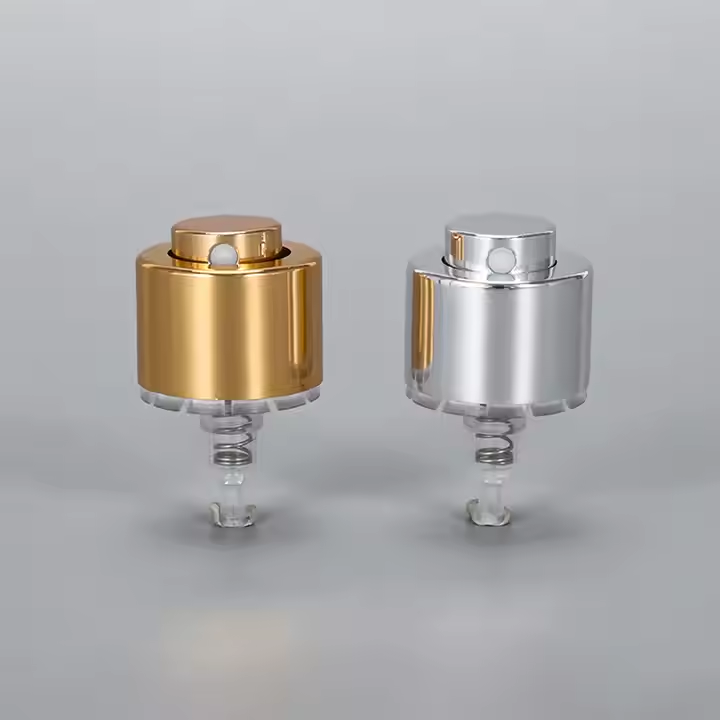Consumer Demand for Eco-Friendly Packaging
Shifts in Consumer Values
In recent years, consumer values have notably shifted, with a significant emphasis placed on sustainability. A 2023 study revealed that over 60% of global consumers consider environmental sustainability a primary factor when purchasing beauty products. This change is largely driven by consumers' growing awareness of climate change and environmental degradation, and it is influencing their purchasing decisions substantially. They now expect beauty brands to adopt environmentally responsible packaging solutions.
Influence of Social Media
The influence of social media cannot be underestimated in this transformation. Platforms like Instagram and TikTok have become powerful tools for eco-conscious influencers who promote low-waste lifestyles and sustainable brands. This peer-to-peer advocacy forces beauty companies to adhere to higher environmental standards due to the increased transparency and accountability brought about by these platforms.
Material Innovations in Sustainable Beauty Packaging
Recyclable and Biodegradable Materials
Innovative materials are at the forefront of sustainable beauty packaging. Brands are transitioning from traditional plastics to biodegradable and recyclable materials such as paper, glass, and aluminum. For instance, glass and aluminum are favored due to their recyclability and premium feel, offering a sustainable alternative to conventional plastic packaging.
Plant-Based and Alternative Plastics
Plant-based plastics are gaining traction as they offer a biodegradable option that aligns with eco-friendly goals. This alternative helps reduce the beauty industry's ecological footprint, with suppliers and factories increasingly adopting these materials in their packaging designs.
Minimalist Design and Its Environmental Impact
Simplicity and Functionality
Minimalist design, characterized by simplicity and elegance, is appealing to environmentally conscious consumers. By reducing unnecessary packaging layers and using clean aesthetics, beauty brands not only lower material usage but also convey a message of environmental responsibility.
Lower Environmental Footprint
Streamlined packaging reduces waste and the carbon footprint associated with production and transportation. This strategy is increasingly favored in the wholesale and supplier sectors, where cost efficiency and sustainability can go hand in hand.
Reusable and Refillable Packaging Solutions
Popular Systems and Methods
In the quest to minimize single-use packaging waste, reusable and refillable systems are becoming commonplace. Innovative refill systems for products such as perfumes and skincare are increasingly popular, allowing consumers to maintain the original packaging while only replacing the product itself.
Benefits of Reusability
Refillable packaging not only reduces waste but also promotes brand loyalty by encouraging repeat purchases. This approach is being adopted by various factories and suppliers to meet the increasing demand for sustainable solutions in the beauty industry.
Tackling Plastic Waste Through Innovative Approaches
Incorporating Post-Consumer Recycled (PCR) Plastic
Many beauty brands are turning to post-consumer recycled (PCR) plastic to mitigate plastic waste. A report from 2023 stated that 65% of brands have reduced virgin plastic usage by incorporating PCR materials, helping to close the loop on plastic waste.
Waterless Product Trends
Waterless beauty products are another innovative solution, eliminating the need for water-based formulations that often require additional packaging. These concentrated formulations use less plastic and align with sustainability goals.
Eco-Friendly Inks and Label-Free Designs
Reduction of Harmful Emissions
Eco-friendly inks, such as water-based, soy-based, and vegetable-based options, are being used to reduce harmful emissions and chemical waste. This transition is part of a broader narrative towards sustainable printing practices in the beauty packaging industry.
Embossing and Direct Printing
Label-free packaging using embossing and direct printing methods minimizes the use of adhesive labels, contributing to a more sustainable packaging solution. These innovative approaches are being embraced by suppliers and factories alike.
Circular Economy Principles in Beauty Packaging
Designing for Recyclability
The beauty industry is increasingly adopting circular economy principles, focusing on designing packaging with recyclability in mind. This involves creating mono-material packaging that simplifies the recycling process, improving the overall sustainability of beauty products.
Closed-Loop Systems
Closed-loop systems aim to create a more efficient and sustainable lifecycle for packaging. By designing products to be reused or easily recycled, beauty brands can significantly reduce their environmental impact, benefiting both factories and wholesale suppliers.
Cost Benefits and ROI of Sustainable Packaging
Lower Material and Shipping Costs
Sustainable packaging often involves fewer materials, thereby reducing production and shipping costs. These savings can be passed on to consumers, making sustainable products more accessible without sacrificing profitability.
Improving Brand Image and ROI
Adopting environmentally-friendly packaging solutions enhances brand image and fosters customer loyalty. As consumers prioritize sustainability, brands can see improved returns on investment by aligning with these values.
Overcoming Challenges in Global Recycling Infrastructure
Regional Differences in Recycling
The global inconsistency in recycling infrastructure poses challenges for the beauty industry. What is recyclable in one region may not be in another, complicating efforts to implement universal sustainability standards.
Combating Greenwashing
Brands must be transparent and genuine in their sustainability claims to avoid greenwashing. Verified certifications and life cycle assessments can help maintain consumer trust and support genuine environmental responsibility.
Future Prospects and Industry-Wide Collaborations
Role of Industry Partnerships
Collaborations such as those with Sustainable Packaging Coalition are critical in standardizing practices and advancing sustainable solutions industry-wide. By working together, beauty brands can achieve broader sustainability goals more efficiently.
Technological Advancements
As demand grows and technology improves, the cost of sustainable solutions is expected to decrease, making them more accessible. Factories and suppliers will be at the forefront of providing these innovations, further integrating sustainability into the beauty industry.
Hansonpackaging Provide Solutions
At Hansonpackaging, we offer a range of sustainable packaging solutions tailored for the beauty industry. Our innovative materials and designs prioritize environmental responsibility without compromising on quality or aesthetics. As a leading supplier, we work directly with factories to ensure our products meet the highest sustainability standards, providing wholesale solutions that align with eco-friendly values. From recyclable materials to refillable systems, we’re committed to helping brands reduce their ecological footprint. Contact us today to learn how we can support your sustainable packaging needs.
User hot search: environmentally friendly cosmetic packaging
Post time: 2025-08-29 03:33:15
















